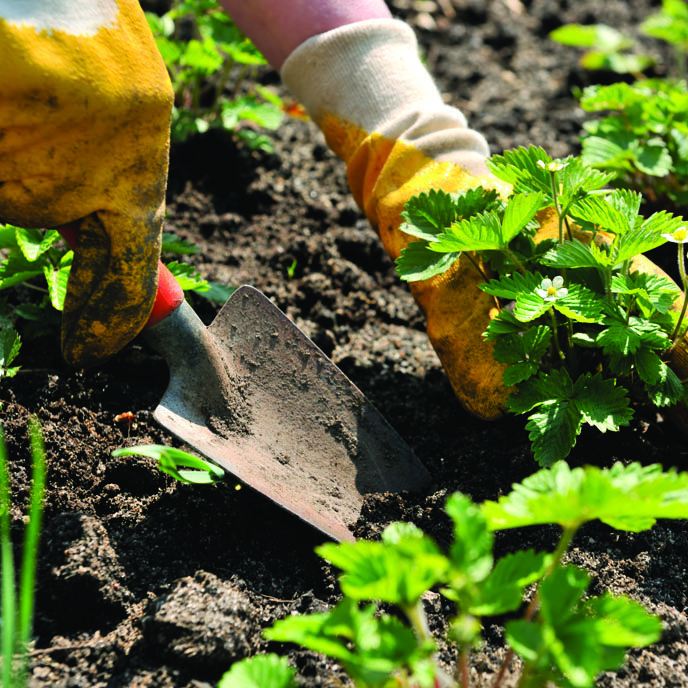Seasonal Gardening Tips: What to Plant and When for Best Outcomes
Seasonal Gardening Tips: What to Plant and When for Best Outcomes
Blog Article
Opening the Conveniences of Horticulture: A Detailed Appearance at the Different Kinds and Their Influence On Health
Discovering the multifaceted advantages of gardening reveals a spectrum of techniques that substantially boost private wellness. As we take a look at these varied gardening techniques, it ends up being apparent that their influence can reverberate on individual, social, and ecological levels, triggering a better look at just how these links create a cohesive narrative of alternative health and wellness.
Kinds of Gardening

Blossom horticulture, an additional preferred group, emphasizes the aesthetic charm of cultivated flowers. This kind can boost landscapes and advertise biodiversity by bring in useful pollinators. Herb horticulture involves growing fragrant and cooking plants, adding both to food preparation and natural solutions.
Container gardening offers flexibility, making it possible for people with restricted room to participate in horticulture by making use of pots and planters. This method is specifically popular in urban settings. Increased bed gardening, on the various other hand, entails developing elevated plots that improve soil drain and availability, making it easier for garden enthusiasts to manage their plants.
Finally, community horticulture cultivates partnership among people in common rooms, promoting social interaction and collective obligation. Each sort of horticulture serves distinctive functions and caters to various choices, making gardening a functional activity that can be tailored to specific needs and environments.
Mental Health Advantages
Involving in various kinds of gardening not just produces substantial incentives such as fresh produce and stunning flowers but also provides considerable mental health advantages. Research study indicates that gardening can be a powerful device for lowering anxiety, stress and anxiety, and clinical depression. The act of having a tendency to plants and growing a yard cultivates a feeling of purpose and success, which can enhance general psychological health.
Moreover, gardening urges mindfulness, as it requires individuals to concentrate on the present moment, whether it be planting seeds or nurturing growth. This mindfulness technique can bring about reduced rumination and improved mood security. The direct exposure to natural surroundings during horticulture has likewise been linked to enhanced cognitive functioning and lowered feelings of fatigue.
Social communication plays a critical role in psychological health and wellness, and neighborhood horticulture efforts offer chances for people to link with others, cultivating a feeling of belonging. The Click This Link common experience of horticulture can grow friendships and support networks, additionally bolstering emotional durability.
Physical Health Conveniences
Several people may not understand that gardening also supplies significant physical health advantages. Taking part in horticulture tasks requires a variety of physical activities, including bending, lifting, excavating, and growing, which jointly contribute to improved strength, flexibility, and endurance. These activities can enhance cardio wellness by advertising a raised heart price, thus lowering the danger of heart problem.
Furthermore, gardening can act as a moderate-intensity exercise, assisting individuals accomplish recommended exercise degrees. Research studies indicate that regular involvement in horticulture can shed substantial calories-- around 200-400 calories per hour, relying on the intensity of the jobs done. Such calorie expense is helpful for weight monitoring and total metabolic health.
In addition, exposure to sunshine throughout gardening can assist in the synthesis of vitamin D, which plays an important duty in maintaining bone wellness and supporting immune function. In addition, the act of horticulture often involves dealing with soil, which has been connected to potential psychological and physical health have a peek at this site and wellness advantages because of the visibility of useful microorganisms. Gardening.
Social Connections With Horticulture
The common aspects of gardening foster meaningful social links among people. Area gardens, particularly, act as lively hubs where people from diverse histories integrated, growing not just plants yet additionally relationships. These common spaces encourage cooperation, enabling individuals to exchange expertise, skills, and resources, therefore enhancing their horticulture experience and cultivating a feeling of belonging.
Engagement in gardening activities often leads to the development of relationships and assistance networks. Individuals often unify for typical objectives, such as growing seasons, harvest events, or academic workshops, which enhance interpersonal connections and develop a feeling of community. Such communications can alleviate feelings of seclusion and improve mental well-being, as individuals find companionship and camaraderie in common endeavors.

Environmental Impact of Gardening
Horticulture significantly adds to ecological sustainability in several methods. Home yards give vital habitats for various types, including pollinators such as and butterflies, which are important for ecosystem wellness.

In addition, yards play an important role in water preservation. Tactical landscapes, including native plants and xeriscaping, minimize water usage and stop runoff, consequently safeguarding neighborhood waterways from air pollution.
Verdict

The diverse types of horticulture-- consisting of vegetable, flower, herb, container, and elevated bed-- add to psychological and physical health and wellness, foster social connections, and advertise environmental sustainability. By involving in horticulture practices, individuals can experience better quality of life while additionally sustaining community bonds and eco-friendly health and wellness.
Report this page